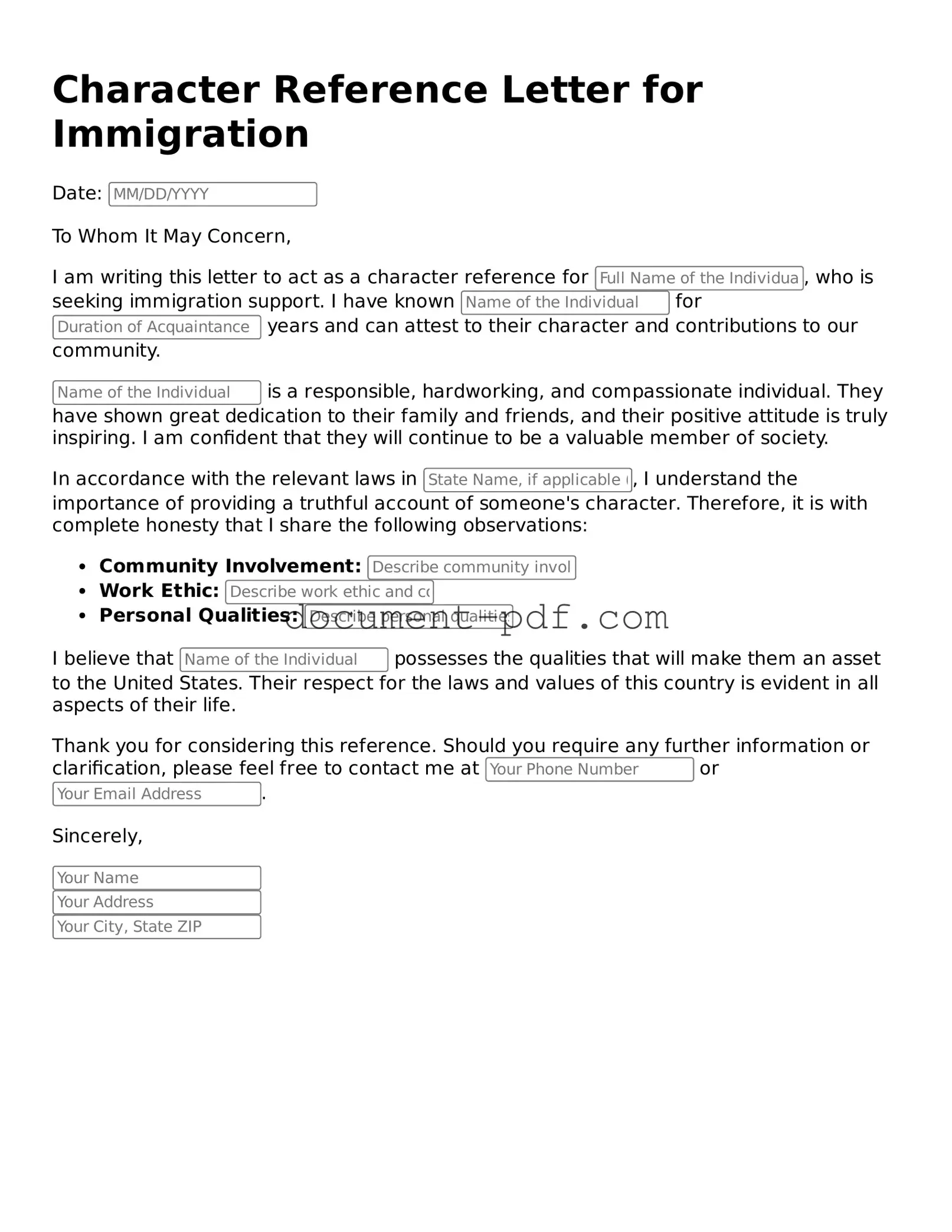Attorney-Approved Character Reference Letter for Immigration Document
The Character Reference Letter for Immigration is a document that supports an individual's immigration application by providing insights into their character and contributions to the community. This letter is typically written by someone who knows the applicant well, such as a friend, employer, or community leader, and serves to affirm their good character and suitability for residency. Understanding how to craft this letter is essential for enhancing the chances of a successful immigration application.
To begin the process, consider filling out the form by clicking the button below.
Access Character Reference Letter for Immigration Editor Here

Attorney-Approved Character Reference Letter for Immigration Document
Access Character Reference Letter for Immigration Editor Here
Finish the form without slowing down
Edit your Character Reference Letter for Immigration online and download the finished file.
Access Character Reference Letter for Immigration Editor Here
or
Click for PDF Form
